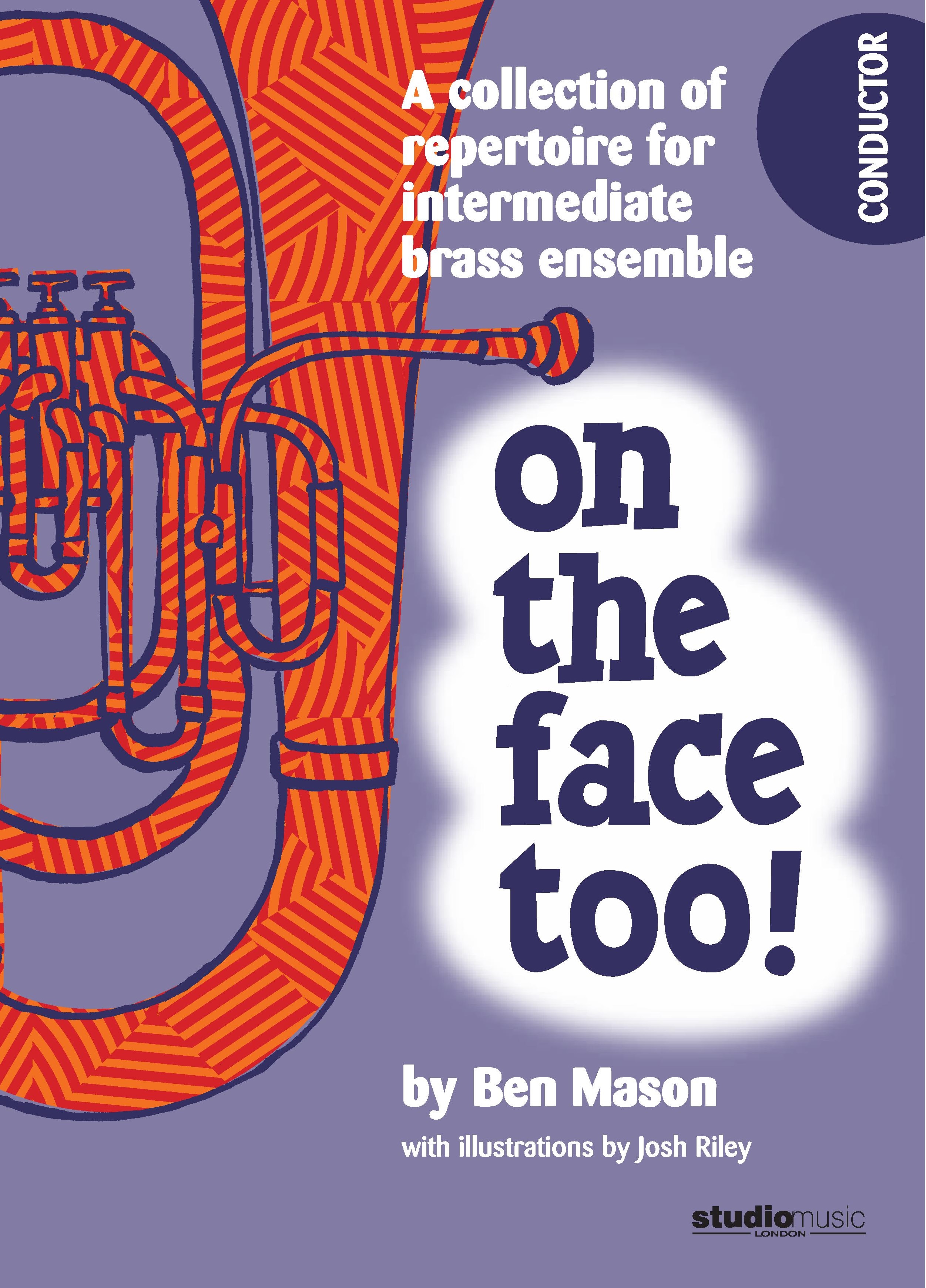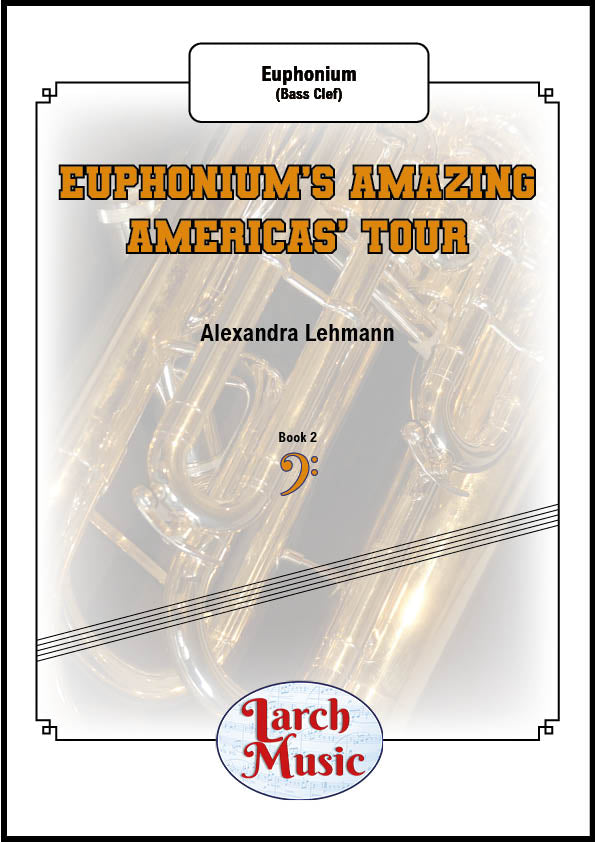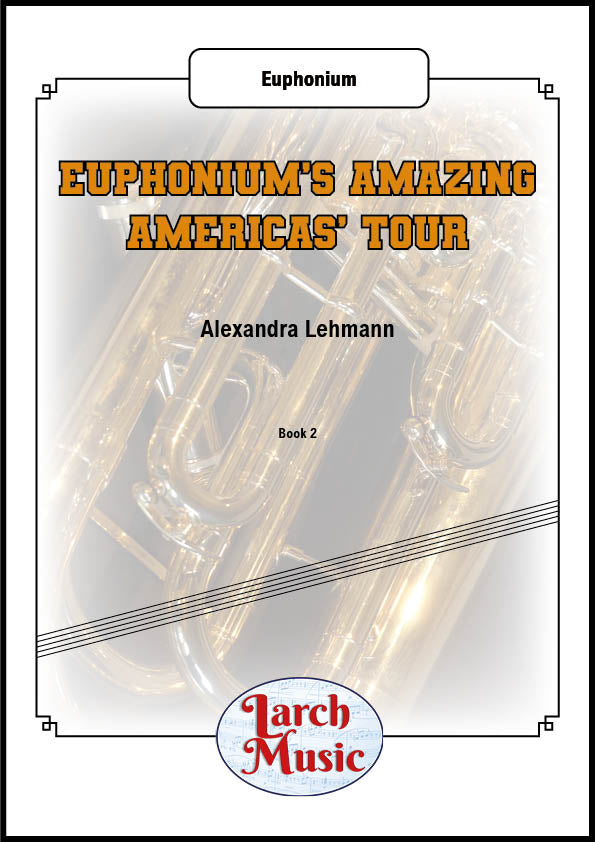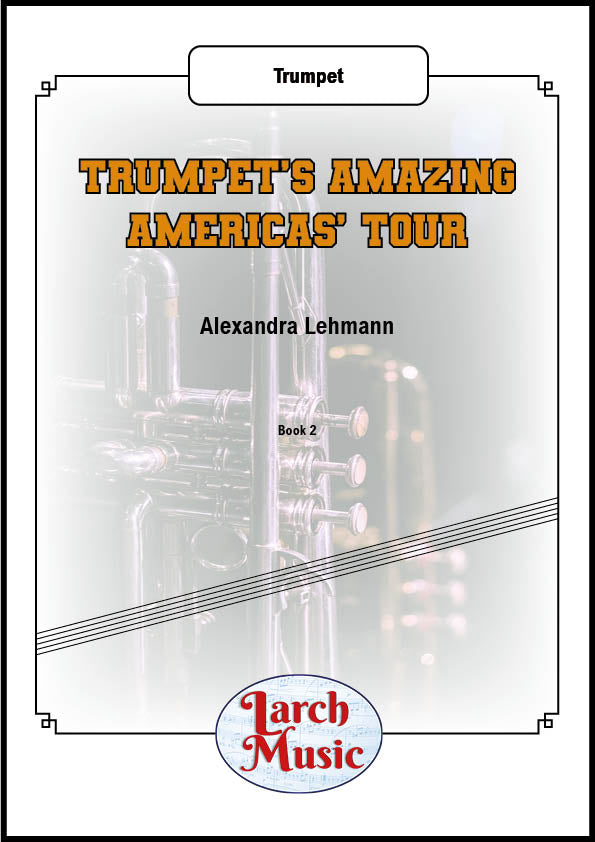Results
-
 £37.95
£37.95The Torchbearer (Symphonic Variations on a Theme by Eric Ball) (Brass Band - Score only) - Graham, Peter
2015 National Championships Regionals - Championship Section. The variations are based upon the first phrase of the trio from Eric Ball's Salvation Army march, Torchbearers. After opening statements of the theme, variation 1 (an energetic allegro brillante utilising fragment A) commences. Cadenza passages for Eb Bass and Euphonium lead to variation 2 (an andante appassionato based upon fragment B) Variation 3 (a vivace featuring C as an ostinato) is followed by variation 4 (the central andante e sciolto molto for solo cornet). The work culminates in a reprise of the cornet solo, now fully metamorphosised and mirroring in music a concept at the centre of Ball's broader philosophy, that of transformation. Eric Ball will be remembered as a composer whose classic works for brass shine through with integrity and sincerity. There has been no less sincere in the composers' efforts to pay musical tribute to the 20th century's most influential composer of brass band music. Duration: 12:30
Estimated dispatch 7-14 working days
-
 £49.95
£49.95On the Face Too! (Value Set)
Value Set includes: a score and one of each part:Part A: Trumpet 1 in BbPart B: Trumpet 2 in BbPart C: Horn in EbPart C: Horn in FPart C: Trombone/Euphonium TCPart C: Trombone/Euphonium BCPart D: Trombone TCPart D: Trombone BCPart D: Bass in EbPart D: Tuba BDPercussionAdditional score and parts are also available individually.On the Face Too! is to the secondary school brass teacher as On the Face! is to the primary: namely a collection of pieces for intermediate brass ensemble in various jazz and popular styles, aiming to give a ready supply of material for concerts and assemblies, which nevertheless still allows for the developing technique of the young players to whom it is addressed.Generally speaking, the technical difficulty of the material here goes no further than grade 4 or 5 (even the first trumpet part never goes higher than a written G), though some pieces will offer considerable rhythmic challenges.
Estimated dispatch 7-14 working days
-
 £12.00
£12.00The World Rejoicing (Brass Band - Study Score)
In searching for a common link between the brass band traditions of the various European countries that commissioned this work, I considered the fact that hymns have always played an important role in the relationship that brass bands have with their particular communities; and thus I turned to a well-known Lutheran chorale, Nun danket alle Gott (Now thank we all our God), written around 1636 by Martin Rinkart, with the melody attributed to Johann Crger. A number of composers have incorporated this chorale into their music, most famously J.S.Bach in his Cantatas no. 79 and 192, and Mendelssohn in the Lobsegang movement of his 2nd Symphony (the harmonization of which is usually used when this hymn is sung).It seemed fitting therefore for me to return to a compositional form I have used many times before (Variations) and to write a work based on this hymn. I have used it in a similar way to that which I employed in my Variations on Laudate Dominum of 1976 - that is, rather than writing a set of variations using elaborations of the complete tune, I have taken various phrases from the chorale and used them within the context of other musical material, applying an overall symphonic process of continuous variation and development. The structure, or sub-divisions of the work, which is through composed and plays without a break, is as follows: Prelude, Capriccio, La Danza 1, Processional, La Danza 2, Arias and Duets, Fuga Burlesca, Chorale, and Postlude.The work is also partly autobiographical - in the manner say of Strauss's Ein Heldenleben - in that I have incorporated into the score brief quotations from many of my other major works for brass band. In that respect, The World Rejoicing sums up a particular facet of my life as a composer, and reflects the admiration I have always had for what is surely one of the great amateur music-making traditions in the world.The World Rejoicing is dedicated 'in loving memory of my brother', Bramwell Logan Gregson, who sadly passed away in the Autumn of 2018.Edward Gregson
Estimated dispatch 7-14 working days
-
 £59.95
£59.95Judd: Caelum Corona - Stephen Bulla
Stephen Bulla's 'Caelum Corona' ('Crown of Heaven') portrays, in sound, a Christian's walk in faith, intended metaphorically via a musical narrative reminiscent of the early church pilgrims, their struggles and triumphs. The composer initially evokes the atmosphere of Rome at the time of St. Paul and other martyrs, thus the Latin title. Bulla marks his imaginative tone poem with dark, brooding music in the first two of three parts, in each of which he has embedded an appropriate hymn or song reference as thematic material. The first of these sounds in a minor key following a symphonic exposition made up primarily of fanfare-like motives, the music at times quite harsh and abrasive. The song is Paul's statement of exuberant faith (2 Timothy 1:12) in the midst of prison and persecution: 'For I know whom I have believed, and am persuaded that he is able to keep that which I've committed unto him against that day.' More challenging, aggressive music returns until a further point of reflection on Christ's sacrifice is reached. The music graphically evokes the barren landscape of Golgatha, the horror of the crucifixion, including stark wind sounds, a loss of stability via eerie, dissonant chord clusters, and even the nails being driven into Christ's body. The Baritones and then Flugel Horn softly play 'He died of a broken heart.' Yet the Christian life, despite its perils - both at the time of Paul and now - is a victorious life, and the composer resolves the tensions of the work in a scintillating finale, a brilliant setting of the old song about spiritual warfare and the ultimate triumph of Christ the King: 'Victory for me!' (T.B. 841). The chorus of that tune proclaims: 'No retreating, hell defeating, shoulder to shoulder we stand; God look down, with glory crown our conq'ring band.' That crowning is the same one sought and claimed by St. Paul (2 Timothy 4:8): 'Now there is in store for me a crown of righteousness, which the Lord, the righteous judge, will award me on that day, but also to all who have longed for his appearing.' Believers look forward to participating in the final coronation of their Saviour - King of Kings and Lord of Lords - while humbly desiring their own 'crown of heaven.'
Estimated dispatch 7-14 working days
-
£26.50
Set of 4 Hymns - Various
Includes a full band set (no score)Hymn 1: Eternal Home by J. A. GreenwoodHymn 2: Heavenly King by J. A. GreenwoodHymn 3: Gladsome Sounds by J. A. GreenwoodHymn 4: Gentle Jesus by W. Rimmer
In Stock: Estimated dispatch 1-3 working days
-
 £9.95
£9.95Euphonium's Amazing Americas Tour - Solo Euphonium (Bass Clef) - LM172 - Alexandra Lehmann
COMPOSER: Alexandra LehmannEuphonium's Amazing Americas TourThe year 2020 will be infamously recorded as a time when musicians had to lead a solitary life, which is incompatible with musical activity.1. Hearty HoedownEuphoniumplays at a lively, social, rural gathering;a 'hoedown'; for cowboys and girls. Yeeha!2. Barcarolle BluesOn the 18th of December 1865, the 13th Amendment(abolishing slavery in USA) was officially adopted into the Constitution.Euphoniumis on a boat sailing the Mississippi with former slavestravelling further north in hope of a better life.As the river gently sways the traumatised passengers,they find solace in music-making.3. Kindred KlezmerEuphoniumis playing for Ashkenazi (West and East European)Jews dancing fervently and with joy as a community.4. Carnival CalypsoFurther south, in 1834,Euphonium is playing at a carnivalcompetition in Trinidad, celebrating the abolition of slavery.It is in call (the lead singer)-and-response (the rest of the group) form.The chariot passes through cheering crowds,and trundles merrily into the distance.5. Tantalising TangoEuphoniumis at a dance theatre in downtown Buenos Aires,playing an intense, and moody tango.Couples dance in a passionate and powerful embrace.6. Hallowed Harawi of the IncasThe Incas are no more, like so many indigenouspeoples of the Americas.Euphonium plays an Incan Harawi,a love song, as their spirit still echoes across the valleys,mountains, forests, and rivers that nurtured them in ancient times.
In Stock: Estimated dispatch 3-5 working days
-
 £9.95
£9.95Euphonium's Amazing Americas Tour - Solo Euphonium (Treble Clef) - LM169 - Alexandra Lehmann
COMPOSER: Alexandra LehmannEuphonium's Amazing Americas TourThe year 2020 will be infamously recorded as a time when musicians had to lead a solitary life, which is incompatible with musical activity.1. Hearty HoedownEuphoniumplays at a lively, social, rural gathering;a 'hoedown'; for cowboys and girls. Yeeha!2. Barcarolle BluesOn the 18th of December 1865, the 13th Amendment(abolishing slavery in USA) was officially adopted into the Constitution.Euphoniumis on a boat sailing the Mississippi with former slavestravelling further north in hope of a better life.As the river gently sways the traumatised passengers,they find solace in music-making.3. Kindred KlezmerEuphoniumis playing for Ashkenazi (West and East European)Jews dancing fervently and with joy as a community.4. Carnival CalypsoFurther south, in 1834,Euphonium is playing at a carnivalcompetition in Trinidad, celebrating the abolition of slavery.It is in call (the lead singer)-and-response (the rest of the group) form.The chariot passes through cheering crowds,and trundles merrily into the distance.5. Tantalising TangoEuphoniumis at a dance theatre in downtown Buenos Aires,playing an intense, and moody tango.Couples dance in a passionate and powerful embrace.6. Hallowed Harawi of the IncasThe Incas are no more, like so many indigenouspeoples of the Americas.Euphonium plays an Incan Harawi,a love song, as their spirit still echoes across the valleys,mountains, forests, and rivers that nurtured them in ancient times.
In Stock: Estimated dispatch 3-5 working days
-
 £9.95
£9.95Trumpet's Amazing Americas Tour - Solo Trumpet - LM187
COMPOSER: Alexandra LehmannTrumpet's Amazing Americas TourThe year 2020 will be infamously recorded as a time when musicians had to lead a solitary life, which is incompatible with musical activity.1. Hearty HoedownTrumpetplays at a lively, social, rural gathering;a 'hoedown'; for cowboys and girls. Yeeha!2. Barcarolle BluesOn the 18th of December 1865, the 13th Amendment(abolishing slavery in USA) was officially adopted into the Constitution.Trumpetis on a boat sailing the Mississippi with former slavestravelling further north in hope of a better life.As the river gently sways the traumatised passengers,they find solace in music-making.3. Kindred KlezmerTrumpetis playing for Ashkenazi (West and East European)Jews dancing fervently and with joy as a community.4. Carnival CalypsoFurther south, in 1834,Trumpet is playing at a carnivalcompetition in Trinidad, celebrating the abolition of slavery.It is in call (the lead singer)-and-response (the rest of the group) form.The chariot passes through cheering crowds,and trundles merrily into the distance.5. Tantalising TangoTrumpetis at a dance theatre in downtown Buenos Aires,playing an intense, and moody tango.Couples dance in a passionate and powerful embrace.6. Hallowed Harawi of the IncasThe Incas are no more, like so many indigenouspeoples of the Americas.Trumpet plays an Incan Harawi,a love song, as their spirit still echoes across the valleys,mountains, forests, and rivers that nurtured them in ancient times.
In Stock: Estimated dispatch 3-5 working days



